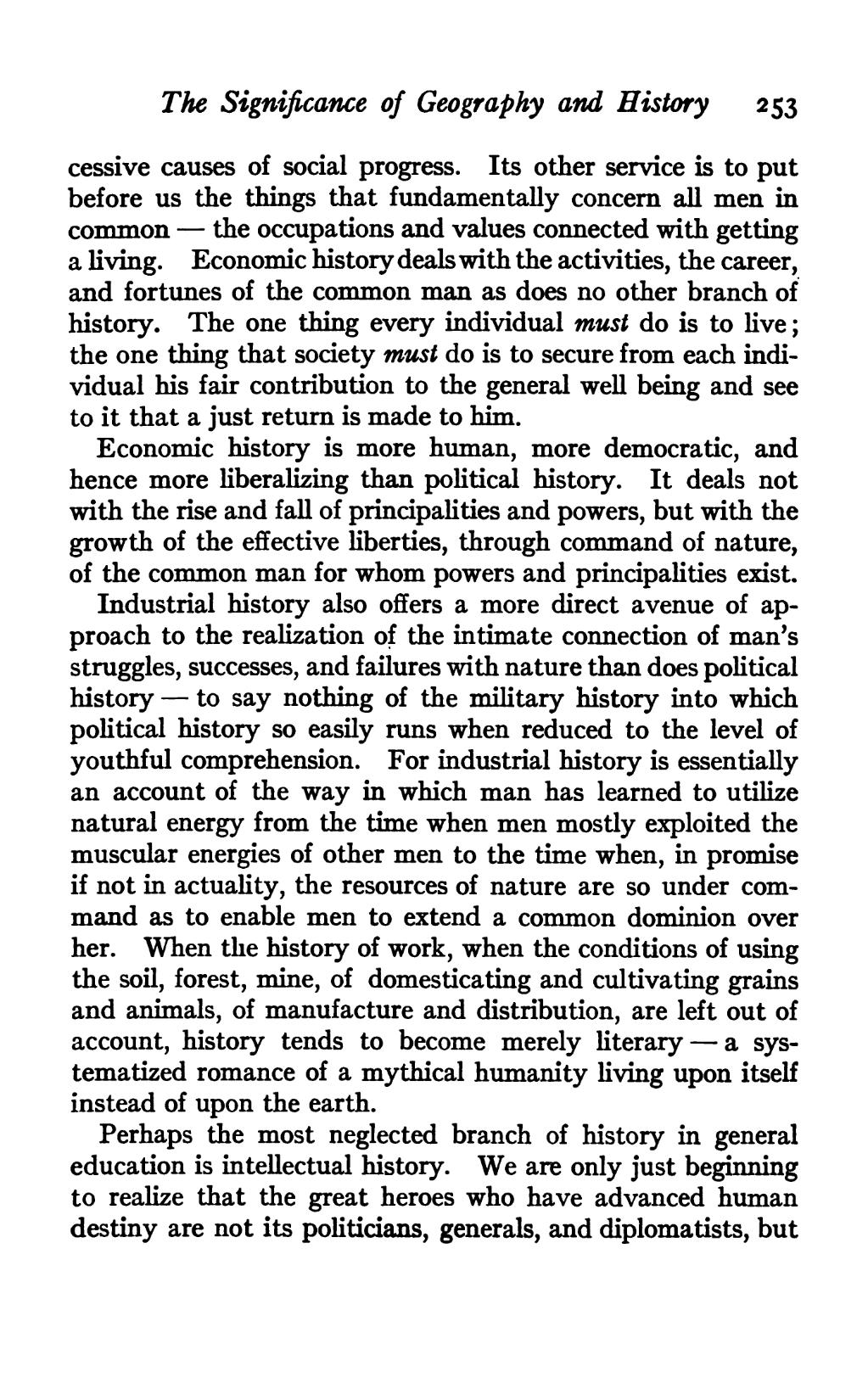cessive causes of social progress. Its other service is to put before us the things that fundamentally concern all men in common—the occupations and values connected with getting a living. Economic history deals with the activities, the career, and fortunes of the common man as does no other branch of history. The one thing every individual must do is to live; the one thing that society must do is to secure from each individual his fair contribution to the general well being and see to it that a just return is made to him.
Economic history is more human, more democratic, and hence more liberalizing than political history. It deals not with the rise and fall of principalities and powers, but with the growth of the effective liberties, through command of nature, of the common man for whom powers and principalities exist.
Industrial history also offers a more direct avenue of approach to the realization of the intimate connection of man's struggles, successes, and failures with nature than does political history—to say nothing of the military history into which political history so easily runs when reduced to the level of youthful comprehension. For industrial history is essentially an account of the way in which man has learned to utilize natural energy from the time when men mostly exploited the muscular energies of other men to the time when, in promise if not in actuality, the resources of nature are so under command as to enable men to extend a common dominion over her. When the history of work, when the conditions of using the soil, forest, mine, of domesticating and cultivating grains and animals, of manufacture and distribution, are left out of account, history tends to become merely literary—a systematized romance of a mythical humanity living upon itself instead of upon the earth.
Perhaps the most neglected branch of history in general education is intellectual history. We are only just beginning to realize that the great heroes who have advanced human destiny are not its politicians, generals, and diplomatists, but
